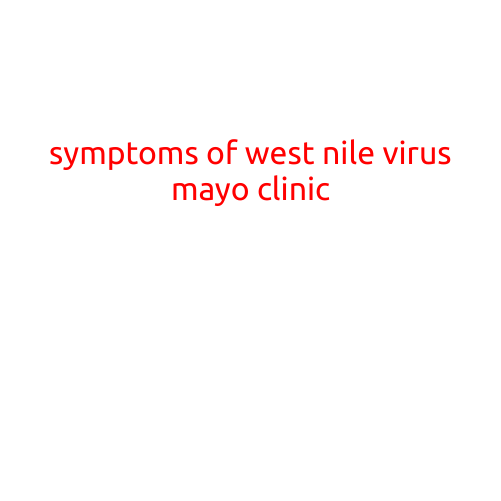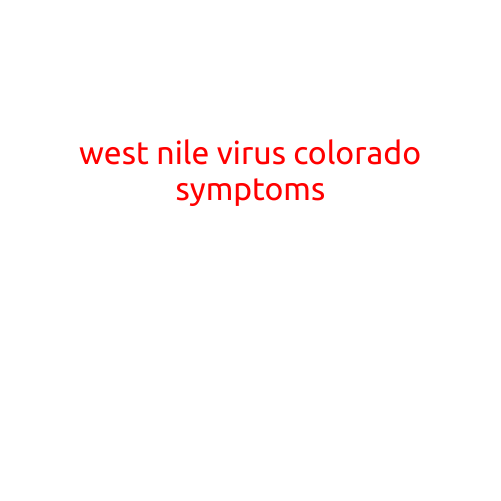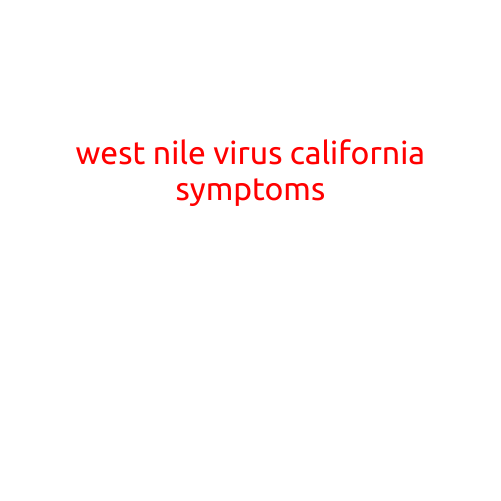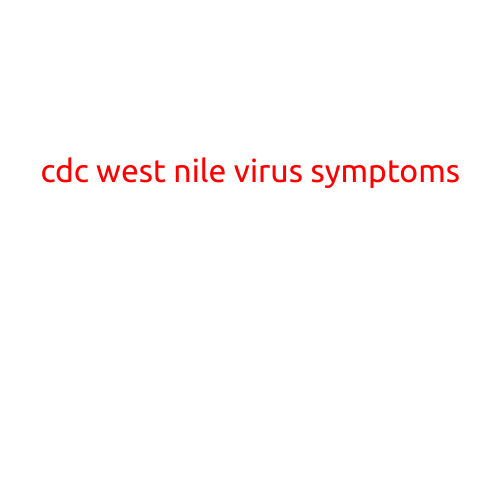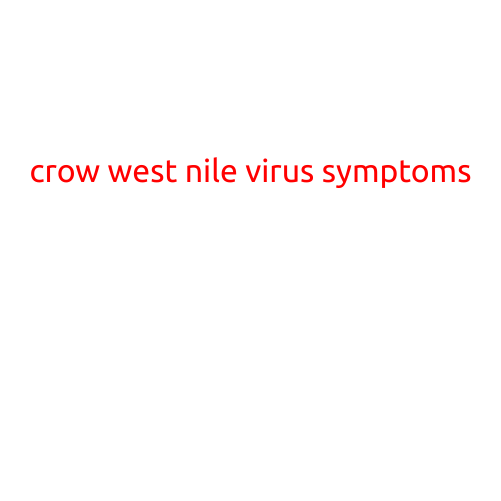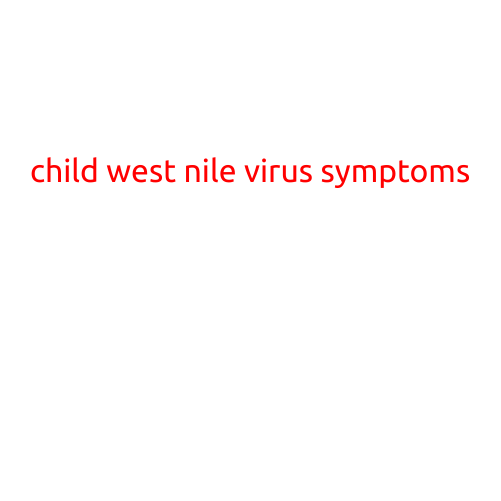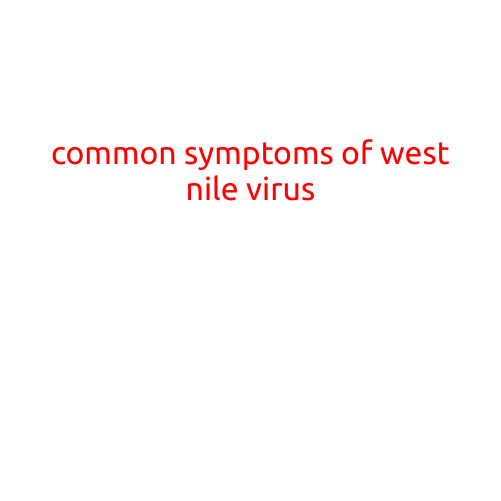
Common Symptoms of West Nile Virus
West Nile virus (WNV) is a mosquito-borne viral illness that is spread to humans through the bite of an infected mosquito. While some people may not experience any symptoms at all, others may develop a range of symptoms, some of which can be severe. In this article, we will explore the common symptoms of West Nile virus.
Mild Symptoms
In most cases, WNV infection causes mild symptoms, which may include:
- Fever (typically above 102°F)
- Headache
- Body aches
- Swollen lymph nodes
- Rash (in some cases)
Serious Symptoms
In a small percentage of people, WNV infection can cause more serious symptoms, which may include:
- High fever (above 103°F)
- Stiff neck
- Confusion
- seizures
- Muscle weakness
- Vision loss (including blindness)
- Facial drooping
- Weakness or paralysis of the arms and legs
Severe Symptoms
In rare cases, WNV infection can cause severe symptoms, which can be life-threatening. These may include:
- Meningitis (inflammation of the lining around the brain and spinal cord)
- Encephalitis (inflammation of the brain)
- Acute flaccid paralysis (sudden weakness or paralysis of the muscles)
- Respiratory failure
- Cardiac problems
- Digestive problems
Symptoms in Children
In children, symptoms of WNV infection may include:
- High fever
- Headache
- Stiff neck
- Irritability
- Seizures
- Encephalitis (inflammation of the brain)
Symptoms in the Elderly
In older adults, symptoms of WNV infection may be more subtle and may include:
- Confusion
- memory loss
- Difficulty speaking or swallowing
- Weakness or paralysis of the arms and legs
- Vision loss
Symptom Timeline
Symptoms of WNV infection typically occur within 3 to 14 days after the bite of an infected mosquito. In some cases, symptoms may not appear for several weeks or even months after the bite.
Prevention
The best way to prevent West Nile virus is to take steps to avoid mosquito bites, such as:
- Wearing insect repellent
- Wearing long-sleeved shirts and pants
- Staying indoors at dawn and dusk when mosquitoes are most active
- Eliminating standing water around your home to prevent mosquito breeding
- Using mosquito nets if you are sleeping outdoors or in an area with no screens
If you suspect you or someone you know has contracted West Nile virus, it is essential to seek medical attention immediately. Early diagnosis and treatment can help prevent serious complications and improve outcomes.
Remember, West Nile virus is a preventable disease, and being aware of the common symptoms can help you take steps to protect yourself and your loved ones.
